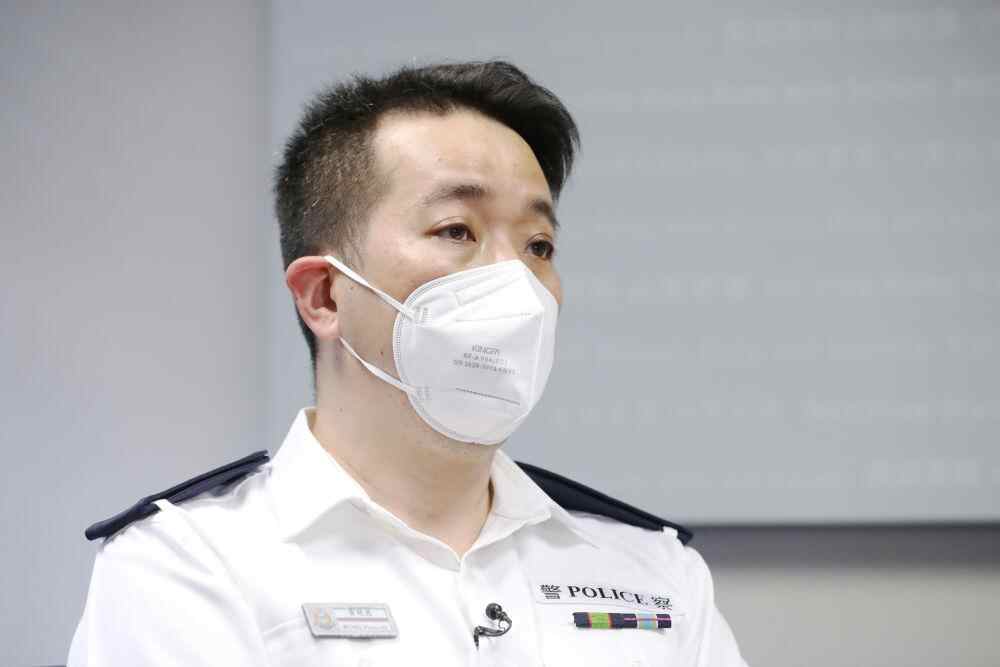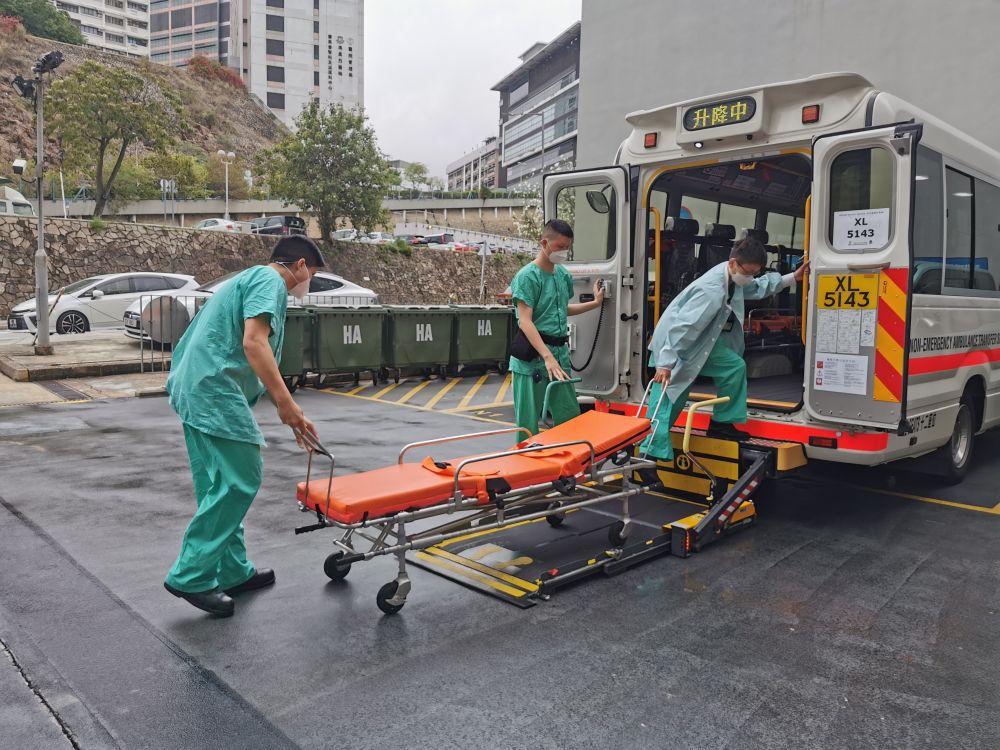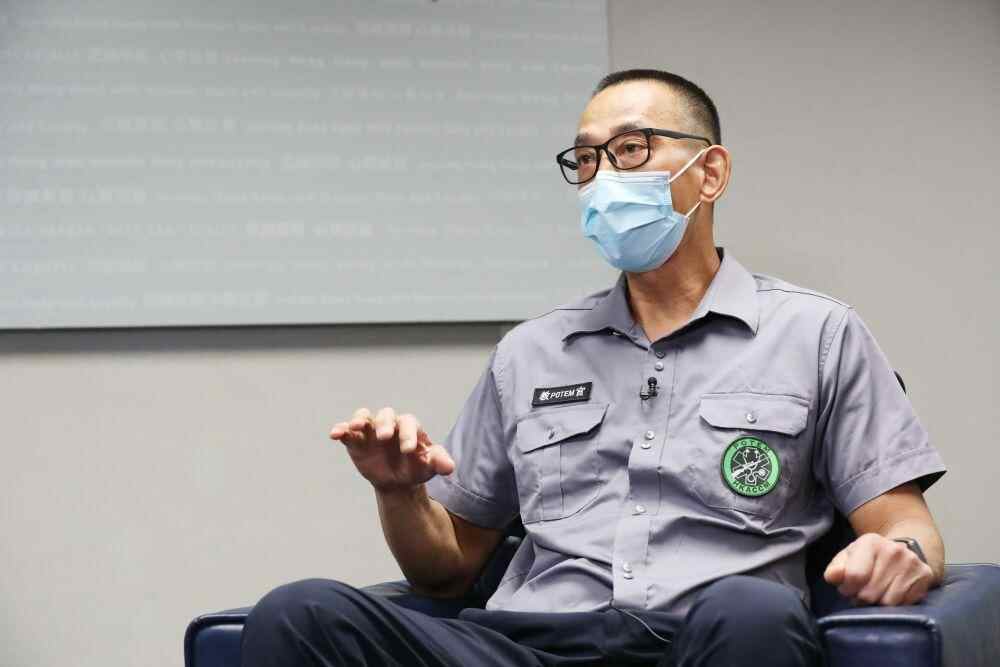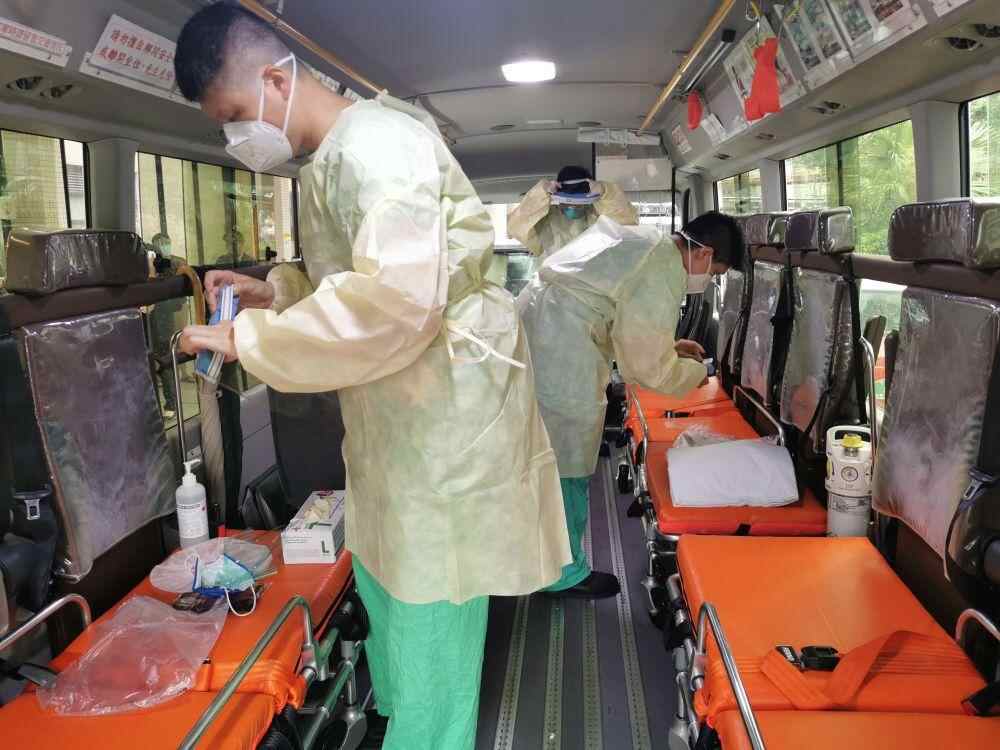Xinhua News Agency, Hong Kong, May 2KomiksTitle: “Citizens Protecting the Civilians” who are going against the epidemic
Xinhua News Agency reporters Liu Mingyang, Huang Qiantian, and Liang Cinema Jiajun
One early spring morning in front of the gate of the Ilyshaber Hospital in Hong Kong (hereinafter referred to as “Ice Hospital”), Hong Kong police officer Huang Jingci and his companions were busy cleaning the ambulance. href=”https://funnybookish.com/”>Komiks Clean and disinfect. They had just transferred a confirmed patient of COVID-19 from the hospital to the isolation center to complete the last task of the day.
The entire cleaning and disinfection process lasted for several minutes. They had clear division of labor and skillful movements, and did not miss any place where the virus might be hidden. Every time a patient is delivered, the ambulance must be disinfected. They repeated such tedious work more than 10 times that day.
After the disinfection of the rescued Cinema ambulance, they must drag their tired bodies to perform two rounds of personal disinfection and cleaning in the hospital and home. At the peak of the epidemic in Hong Kong, such high-intensity dispatch is the norm for their work.

Hong Kong police officer Huang Jingci was interviewed by Xinhua News Agency reporters (photo taken on April 6). Photo by Xinhua News Agency reporter Wu Xiaochu
The epidemic will not recede and will never be withdrawn
After this year’s Spring Festival, the epidemic in Hong Kong has deteriorated sharply, and public hospitals are facing unprecedented pressure to “explode”. In order to reduce the work burden of frontline medical staff, the Hong Kong Police Force has specially formed a “police medical special team”. After receiving the relevant “mobilization order”, Police Station Police Chief Huang Jingci chose to join as soon as possible.
”It took us only two hours to form this group.Everyone thinks this is a very honorable task and the registration is very active. “Huang Jingci said, “Everyone wants to contribute to the fight against the epidemic in difficult times in Hong Kong. ”
When the group was initially established, it consisted of 45 current police officers and 1 retired police officer, and 4 current police officers voluntarily joined the police academy. They all received the training of the “Police-oriented Tactical First Aid Course” and had certain medical knowledge of first aid.

At Margaret Hospital in Hong Kong, members of the “Police Medical Special Team” check the equipment and clean and disinfect the vehicle before transporting patients (photo taken on March 24). Xinhua News Agency
”Not all police officers will receive training for this course. It is designed to train volunteer trainees to use first aid common sense to rescue citizens at traffic accidents or serious violence. “As a part-time tutor for the medical course, Huang Jingci, said, “I am very glad that what I learned in daily life can come in handy at the critical moment of the fight against the epidemic. Going to the front line to “war” with the virus is also protecting citizens. ”
In order to be familiar with the frontline work scenariosKomiks, the group received full-time training provided by the Hong Kong Health Administration on March 2, and was sent to three public hospitals with tight situations the next day to be responsible for non-emergency rescue transportation, including assisting the transfer of confirmed patients to hospitals or to quarantine sites, and transporting recovered patients home.
”Everyone was very motivated when they went out to fight, and they were determined not to recuperate the epidemic and would never withdraw. “Huang Jingci said.
Regarding the changes in the epidemic, the Iran Hospital has been transferred to a designated hospital for COVID-19 patients since March 9. Huang Jingci and nine other colleagues were assigned to this important battlefield in the fight against the epidemic.
”The Iran Hospital in March was really busy. At the peak, we have a day’s fortune..com/”>Babaylan sent 52 patients and had close contact with the confirmed patients every day.” Huang Jingci recalled that he was often too busy to eat at that time. When he was at the busiest, he had to work 14 to 15 hours a day, and it was already late at night when he returned home.
At another large public hospital, Magaree Hospital, under the jurisdiction of the Hospital Authority, retired Sheriff Zhang Yuanguang and his companions were busy transporting patients day and night. As the only retired policeman in the group, when the epidemic was raging, the 63-year-old rushed to the front line without hesitation.

Retired Hong Kong Sheriff Zhang Yuanguang was interviewed by Xinhua News Agency reporters (photo taken on April 6). Photo by Wu Xiaochu, a reporter from China News Agency. “It takes at least 9 and a half hours a day, and sometimes it doesn’t take time to go to the toilet.” Recalling the high-load work in the past two months, Zhang Yuanguang admitted that although the physical work carried by Babaylan was tiring, it was no problem for them to come to Komiks. On the contrary, during the transfer process, we need to always pay attention to the patient’s condition and dare not be careless at all. The tense spirit often makes them forget their fatigue and time.
Release stretchers, care for patients, soothe emotions, clean up the bodies of elderly people with incontinence, disinfect stretchers, wheelchairs and vehicles, and send the rehabilitation person to their homes… From the moment they are received in the hospital, the team members must be responsible for the entire process of the patient until they are safely delivered to the destination.
The members of the “Police Medical Special Team” are composed of police officers of different ranks, but from the general inspector to ordinary police officers, they all do the same job as Babaylan. “Everyone does it by himself regardless of the rank of jobs. As long as the citizens are safe, we will not have any sweat.There is a white flow. “Huang Jingci said.
The transfer process is usually smooth and safe, but I have also encountered sudden emergencies. “While helping a confirmed elderly person transfer to the hospital, I encountered the biggest challenge in this mission: he suddenly failed to breathe and pulse. My colleagues from the Hospital Administration Bureau in the car immediately cooperated to rescue him and urgently notified the control center to transfer him to the intensive care unit as quickly as possible. “Huang Jingci said.
”After a period of running-in, we have established a good working understanding with the frontline medical staff and can deal with some emergencies more calmly. “He said.
Not afraid of hardship and fatigue, never regret
”No matter how dangerous, hard or bad the working environment is, we will not retreat, and no one gives up halfway. In critical moments, someone must stand up, otherwise the difficulties will only be greater. “Zhang Yuanguang has been serving the Hong Kong Police Force for 37 years. After retirement in 2014, he has been assisting the police force in first aid and treatment of the injured as a volunteer.
Protective clothing, masks, gloves, masks… Every time he transfers, he must be fully armed, wrapped tightly from top to bottom. One afternoon in mid-March, Zhang Yuanguang and his colleagues, wearing a full set of protective equipment, transported three elderly patients in bed from two o’clock.

At Hong Kong Margaret Hospital, members of the “Police Medical Special Team” checked the equipment on the vehicle and cleaned and disinfected (photo taken on March 24). Xinhua News Agency issued a report by Xinhua News Agency. According to epidemic prevention requirements, the air conditioner in the ambulance of the transfer patients cannot be turned on, and windows need to be opened for ventilation. The high temperature of nearly 28 degrees Celsius that day made the transfer work extremely difficult.
”I didn’t drink water all afternoon, nor did I go to the toilet. I only realized that it was dusk when I completed the task, and all the clothes on my body could be twisted out of water. “Zhang Yuanguang said.
”We transport most of the elderly. When we send recovered elderly people with reduced mobility, we sometimes encounter old buildings without elevators, so we work together to carry them home. “Huang Jingci told reporters that his team once carried an old man in a wheelchair to the 9th floor.
”We 4Individuals, in groups of two people, take turns to lift up the floor one by one. After arriving at home, the old lady was very grateful to us and kept saying to us with tears in her eyes, “Thank you, please trouble you.” ”
As the epidemic in Hong Kong continues to decline and stabilize, the demand for transportation has also decreased significantly. The “Police Medical Special Team” officially ended its mission to support the frontline anti-epidemic on April 23. In the past two months of work, the team assisted three public hospitals in transferring about 3,200 people, and successfully achieved zero infection and zero loss of staff.
”If you don’t use it, you won’t know whether it is profitable or not. “Zhang Yuanguang said that this experience of supporting the frontline to fight the epidemic is a life experience worth remembering in the police career of the team members. “The most important thing is unity in the face of difficulties. I hope that everyone can start with me, bring more positive energy to society, and work together to get out of the epidemic situation as soon as possible. ”